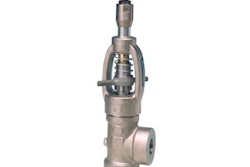PORTLAND, Ore. (AP) -- A Canadian blueberry company has won $39 million in an Oregon court in a lawsuit that accused a Washington company of selling low-grade fertilizer fit for farm fields but not for expensive agricultural potted plants.
JRT Nurseries said the product killed its plants and cost it millions.
The verdict came Wednesday in a suit that contended Sun Gro Horticulture of Bellevue, Wash., was trying in 2007 to break into the high-end fertilizer market and compete with national chains such as Scotts Miracle-Gro Co.
Instead, a jury found the company sold fertilizer "in a defective condition that was unreasonably dangerous to the plaintiff's plants."
Promising to sell a slow-release fertilizer suitable for JRT's products, Sun Gro instead contracted with an Alabama company that sold a product designed for large-scale application in fields and warned it shouldn't be used in high-end products, the suit said.
A call to a Sun Gro spokesman at the company's headquarters Thursday was not immediately returned.
The company bills itself as North America's largest producer of horticultural-grade peat and the largest distributor of peat moss and peat and bark-based growing mixes.
In its response to the lawsuit, Sun Gro said it did not know about warnings from the Alabama company to a third company mixing the fertilizer for Sun Gro.
JRT lawyer Larry Baron the mixing was done by a former Scotts employee who promised to provide high-end fertilizer at a cheaper cost.
"They wanted to compete with Scotts, but they didn't want to invest in the science or the factories to produce it," Baron said.






















